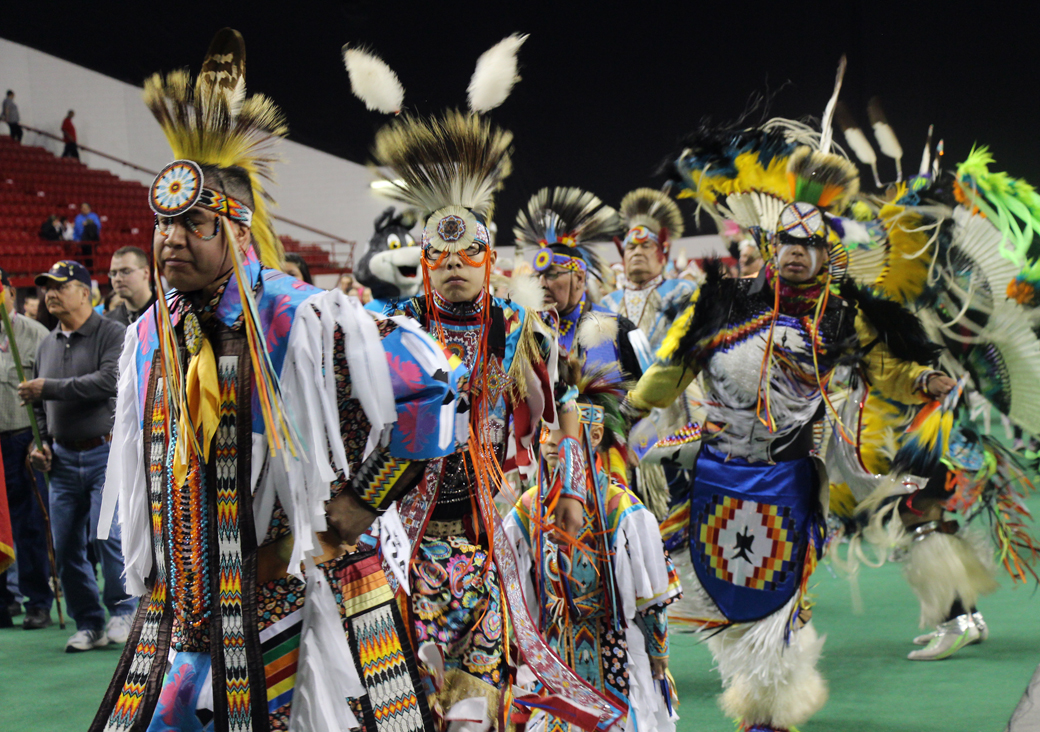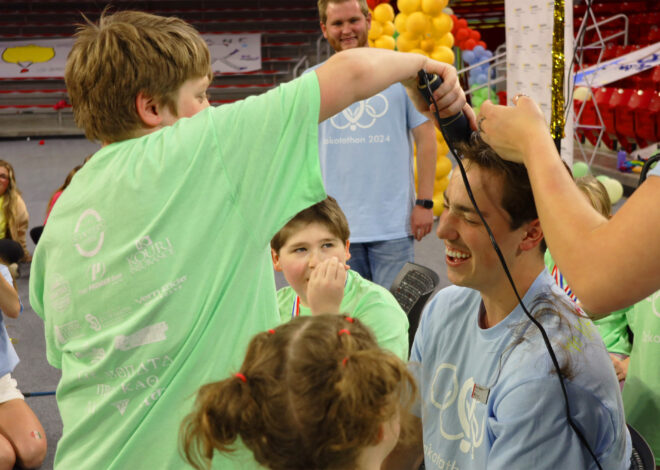
Annual Wacipi draws crowds from all across U.S.
The University of South Dakota Tiospaye Student Council presented its 42nd annual Wacipi Powwow March 28, despite the difficulty of raising enough funds to host the $28,000 event.
Jordan Catlett, president of Tiospaye, said planning for the 2014 Wacipi started early in 2013, and that getting enough funds to put on the two-day event was among the biggest roadblocks in the planning process.
“The price of Wacipi goes up every year,” Catlett said. “We get some funding from the Student Government Association — they give us quite a bit, but not as much as they used to.”
SGA allocated $11,000 to Tiospaye in April 2013 from the General Activity Fund, but Tiospaye also received an additional $1,000 from SGA March 4 as part of a special appropriation to ensure “their event goes off without a hitch,” said then senator Tyler Tordsen during the March 4 meeting.
Because of fundraising shortfalls, Catlett said gathering the remaining funds elsewhere was a challenge.
“That was kind of difficult for us to overcome and find other money sources,” Catlett said.
Aside from SGA, Tiospaye received funding from private donations, casinos and local tribes who helped sponsor Wacipi.
Native American tribes from across the country came to the DakotaDome for the annual celebration, which featured drum circles, traditional regalia and dancing.
Glenn Drapeau is a singer for the band Elk Soldier, which led many of the events during the Wacipi. Drapeau said the band is comprised of many singers and instrumentalists from across the country who first met each other at other powwows.
According to Drapeau, the drum the band uses is considered another member of the band.
“When each one of us hit the drum in unison, we are making the heartbeat of Mother Earth — with our songs, the music and our voices,” he said. “Those combined are what send the voice of Elk Soldier.”
Elk Soldier, first formed in 2004, recorded its fifth album during Saturday’s Wacipi event.
Damon Leader Charge, a USD alum and a singer in Elk Soldier, said before playing the drum, tobacco is placed on top of the drum and a blessing is recited.
“It’s like we’re giving prayers to it so it can give us energy back,” Leader Charge said.
While Elk Soldier performed, dancers dressed in traditional regalia danced in a wide, open area.
Gabe Desroiers, a lecturer of Native American studies at the University of Minnesota-Morris,was one of many dancers dressed in traditional regalia during the powwow. Desroiers said the dances featured at the event are — like the playing of the drum — “very spiritual in nature.”
“The song and dance is not just about what you see in front of your eyes,” Desroiers, a member of the Anishinaabe tribe, said. “It is a connection to Mother Earth, it’s a way of life, it’s a way of practicing thanksgiving.”
Desroiers said different tribes and different geological regions have specific dances they dance. At powwows such as the Wacipi, however, the dance is called an “Intertribal,” which means the beat of the music is almost universal in nature.
Tyler Tordsen, newly-elected president of SGA, also attended the powwow. Tordsen said his favorite part of Wacipi was the turnout.
“The dancers, the singers, the music, the environment…it’s great to see so many people here and to be able to interact and have fun for a weekend,” Tordsen said.
The Wacipi continues Sunday at 1 p.m.


